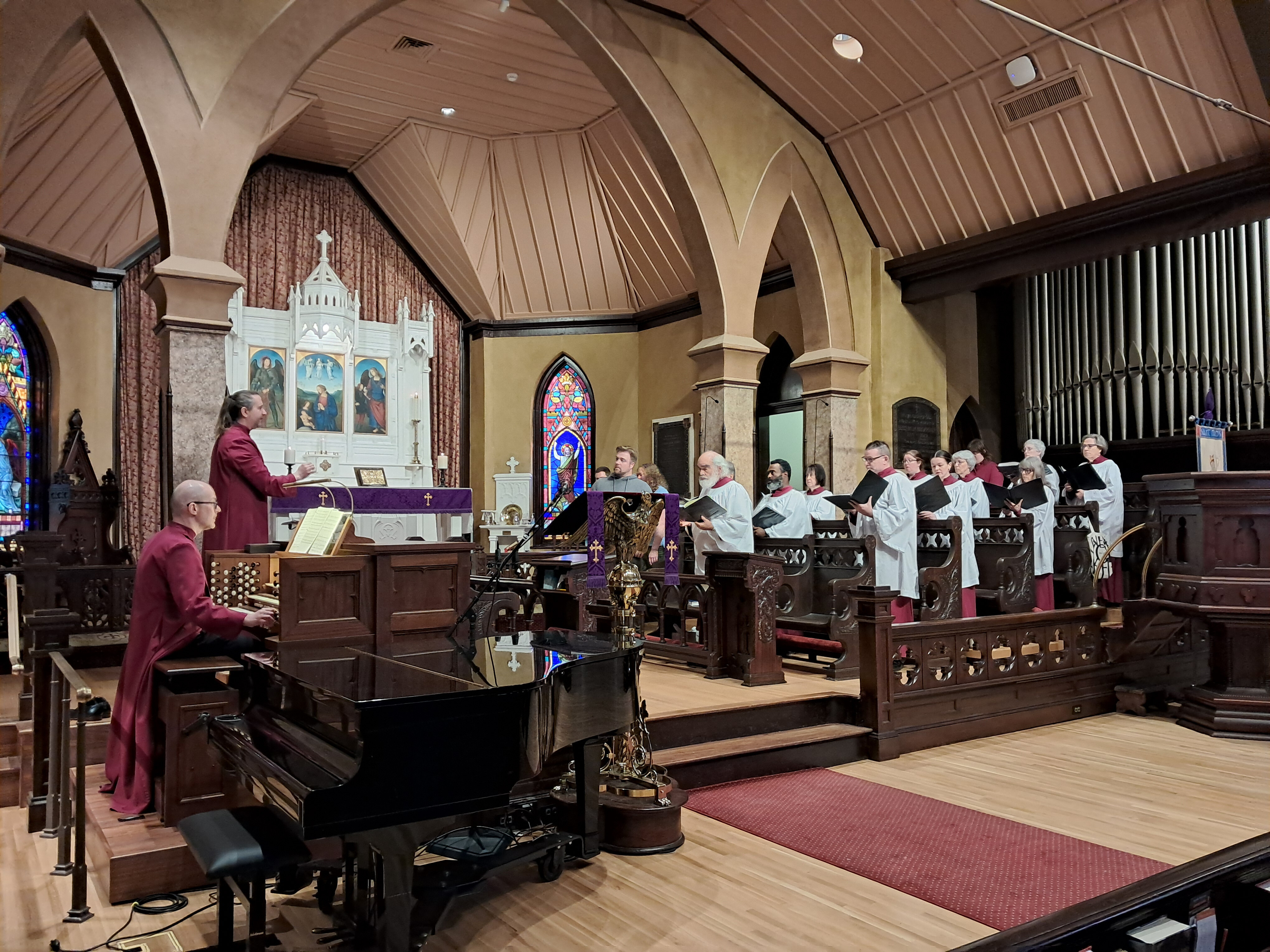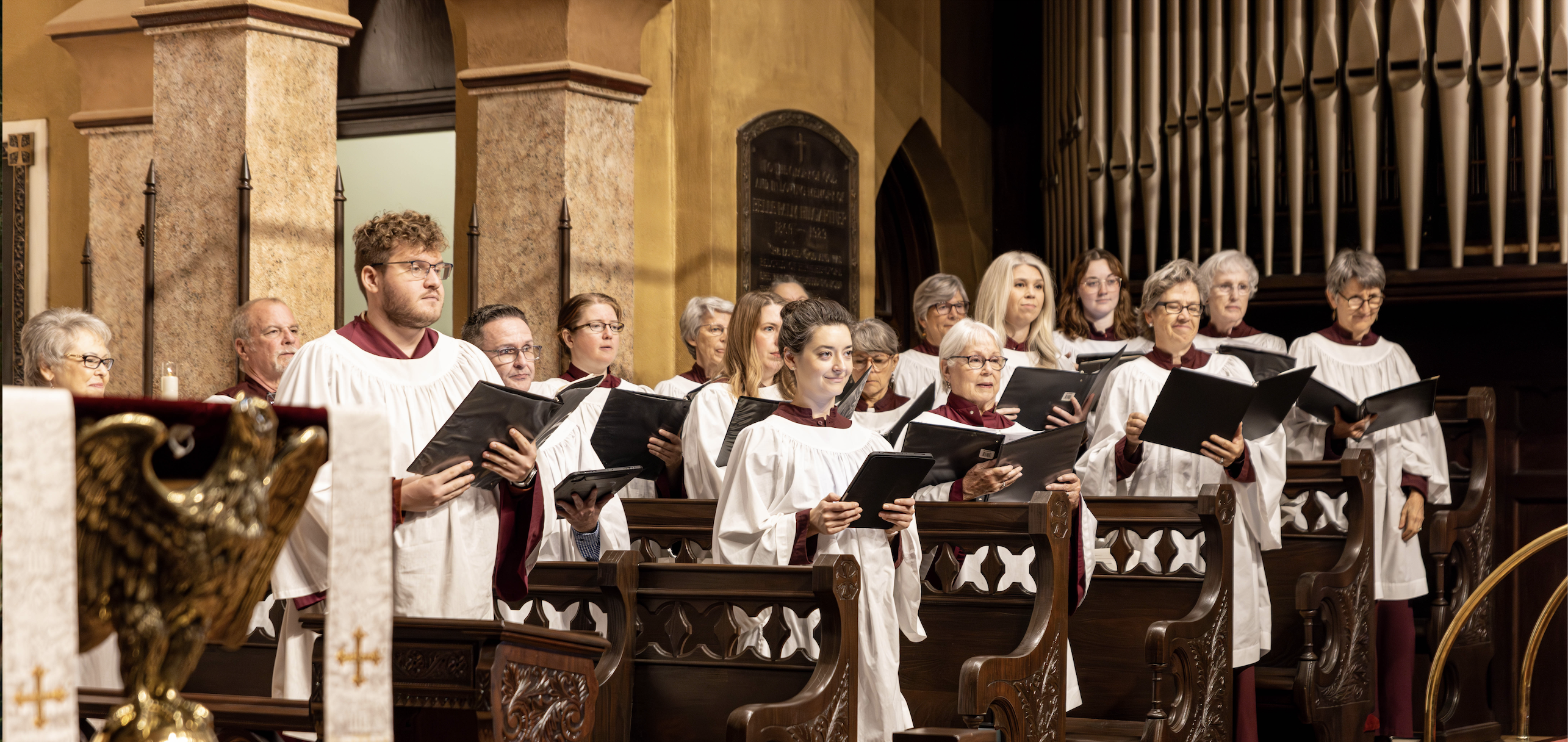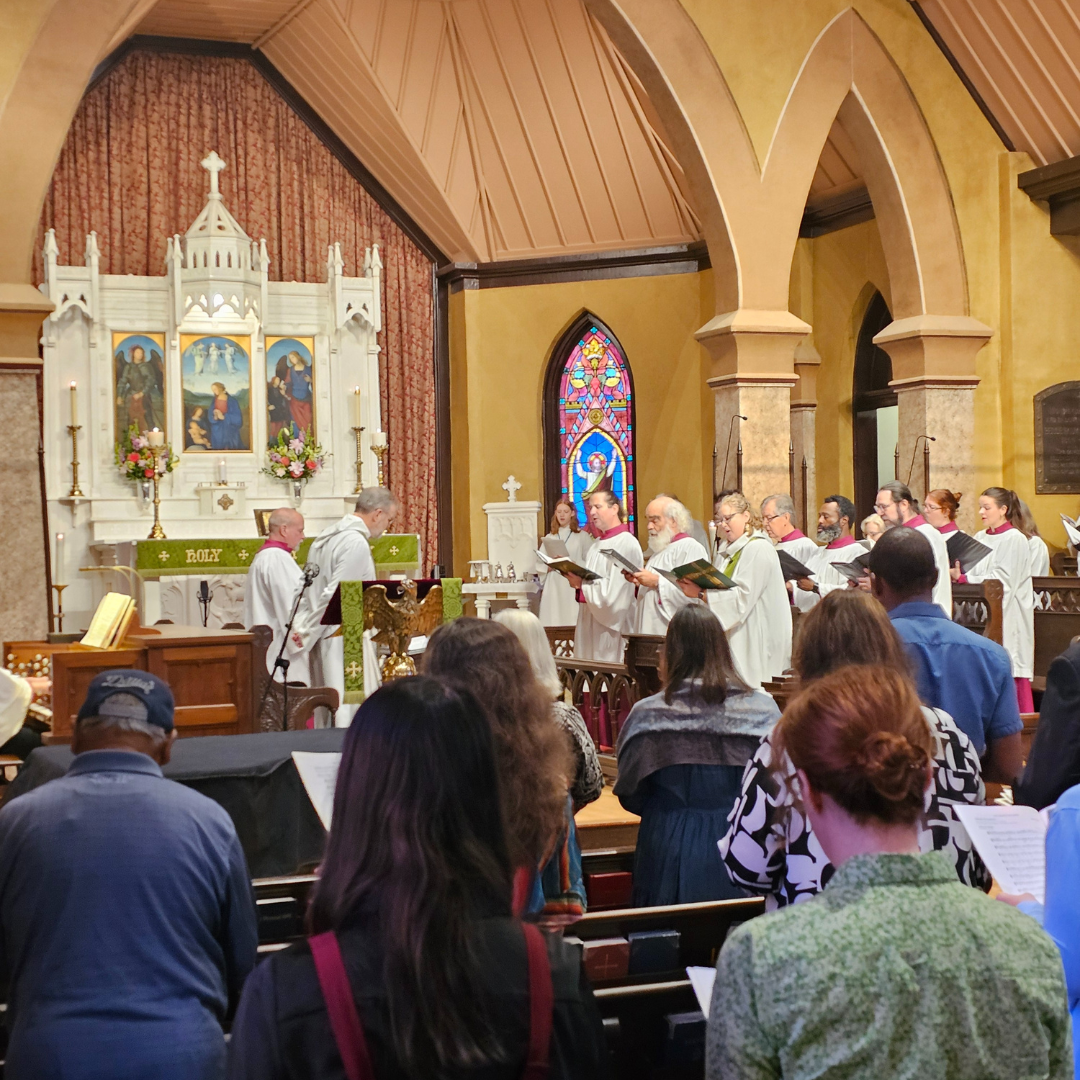
After a three-week focus on the post-Resurrection appearances of Christ, followed by ‘Good Shepherd’ Sunday, the Gospels for the rest of Eastertide continue with various portions of Our Lord’s Farewell Discourse.
This lengthy passage, comprising the 13th (or 14th) through the 17th chapters of John’s Gospel, takes place at the conclusion of the Last Supper (hence parts of it also appear liturgically on Maundy Thursday). In it Jesus prepares his followers for the time when he will no longer be physically with them, giving them his peace, his love, the new commandment, and the promise of the Holy Spirit. Various versions of the ‘new commandment’ to love one another have been set to music a number of times; this week at 11:15 the St David’s Choir sings a setting by William Mundy, a late-sixteenth-century English composer. The 9:00 Offertory hymn also nods toward this Gospel: ‘Where charity and love prevail’ [581] is a paraphrase of ‘Ubi caritas’ (‘Where true charity and love dwell’ [606]), the great hymn of Christian unity appointed to be sung on Maundy Thursday but appropriate on many other occasions.
The unfolding of that unity in Christ – for which Christ himself prayed in the Farewell Discourse – can be seen in the passage from the Acts of the Apostles. The first part of Chapter 11 recounts the vision in which Peter, refusing to eat ‘unclean’ animals, is told, ‘What God has made clean, you must not call profane’, and the subsequent outpouring of the Spirit upon a group of Gentiles, to the amazement of the Jewish Christians. Two of our hymns make reference to this ever-widening circle of fellowship and love: ‘In Christ there is no East or West’ [529] and ‘When Christ was lifted from the earth’ [603]. The latter, for us at this moment in the Church’s year, also looks forward to Christ’s Ascension forty days after Easter, and reiterates the necessity of Christ’s departure in order for the divine presence hitherto concentrated in his earthly body to be dispersed throughout his Body, the Church, by means of his Body, the Sacrament, and cast far and wide by the Holy Spirit.
An appropriate Communion text at any time is ‘O taste and see that the Lord is good’ (Psalm 34.8). The St David’s Choir delightedly joins forces with the Children’s Choir to sing Ralph Vaughan Williams’s famous setting of it.





Login To Leave Comment